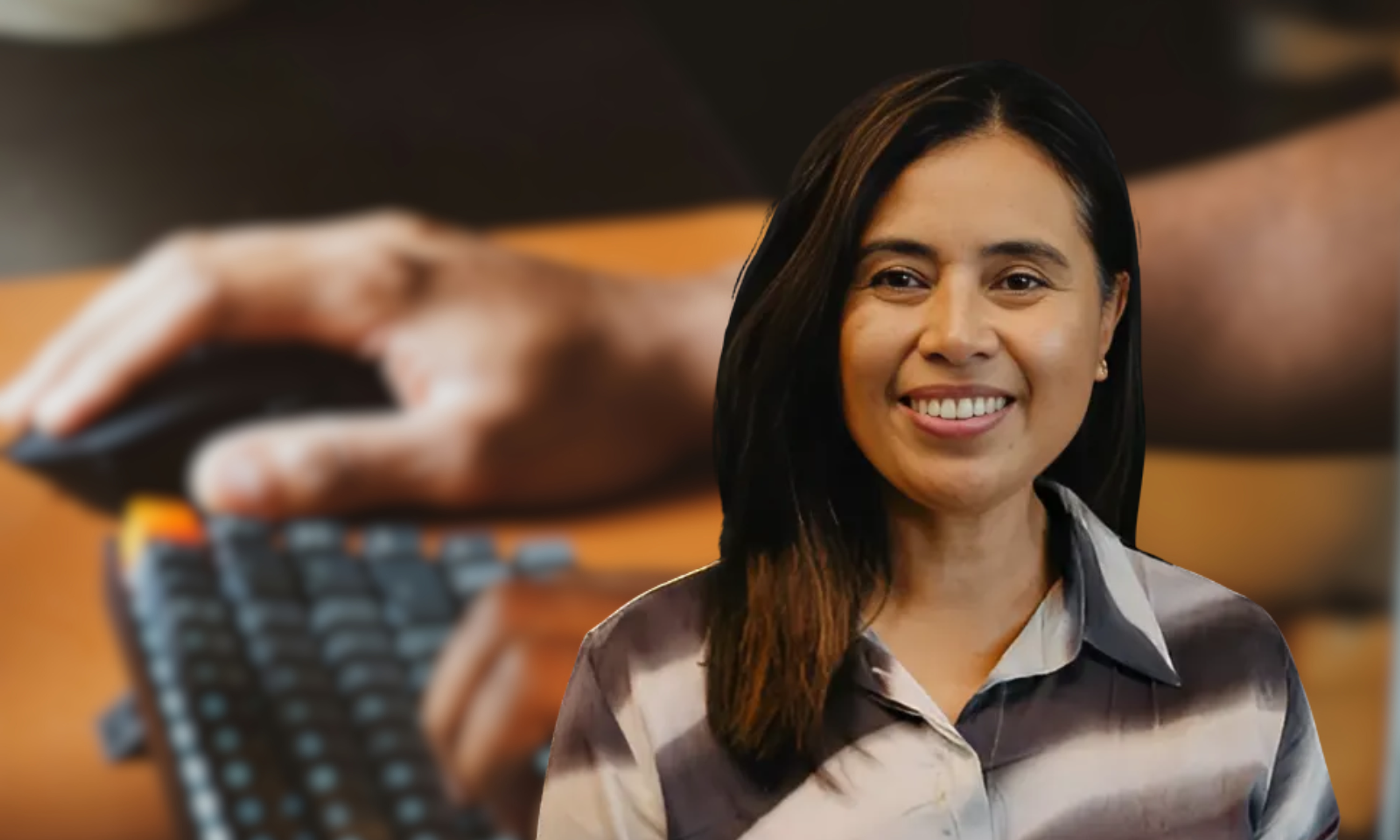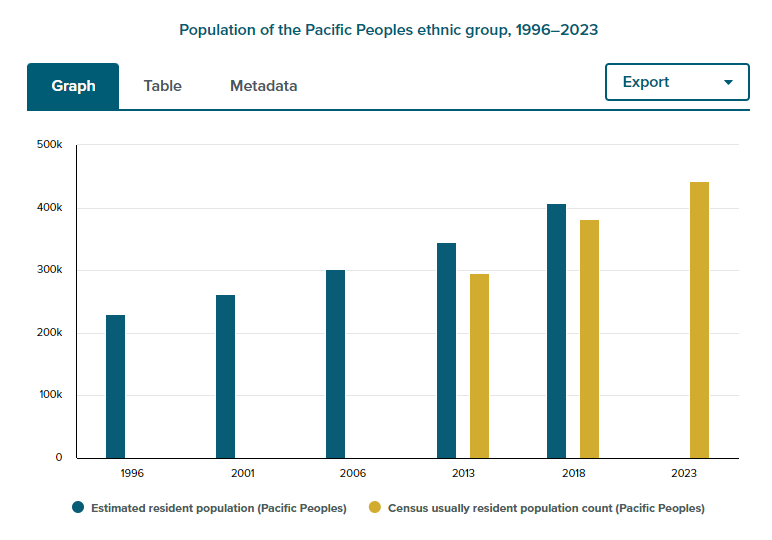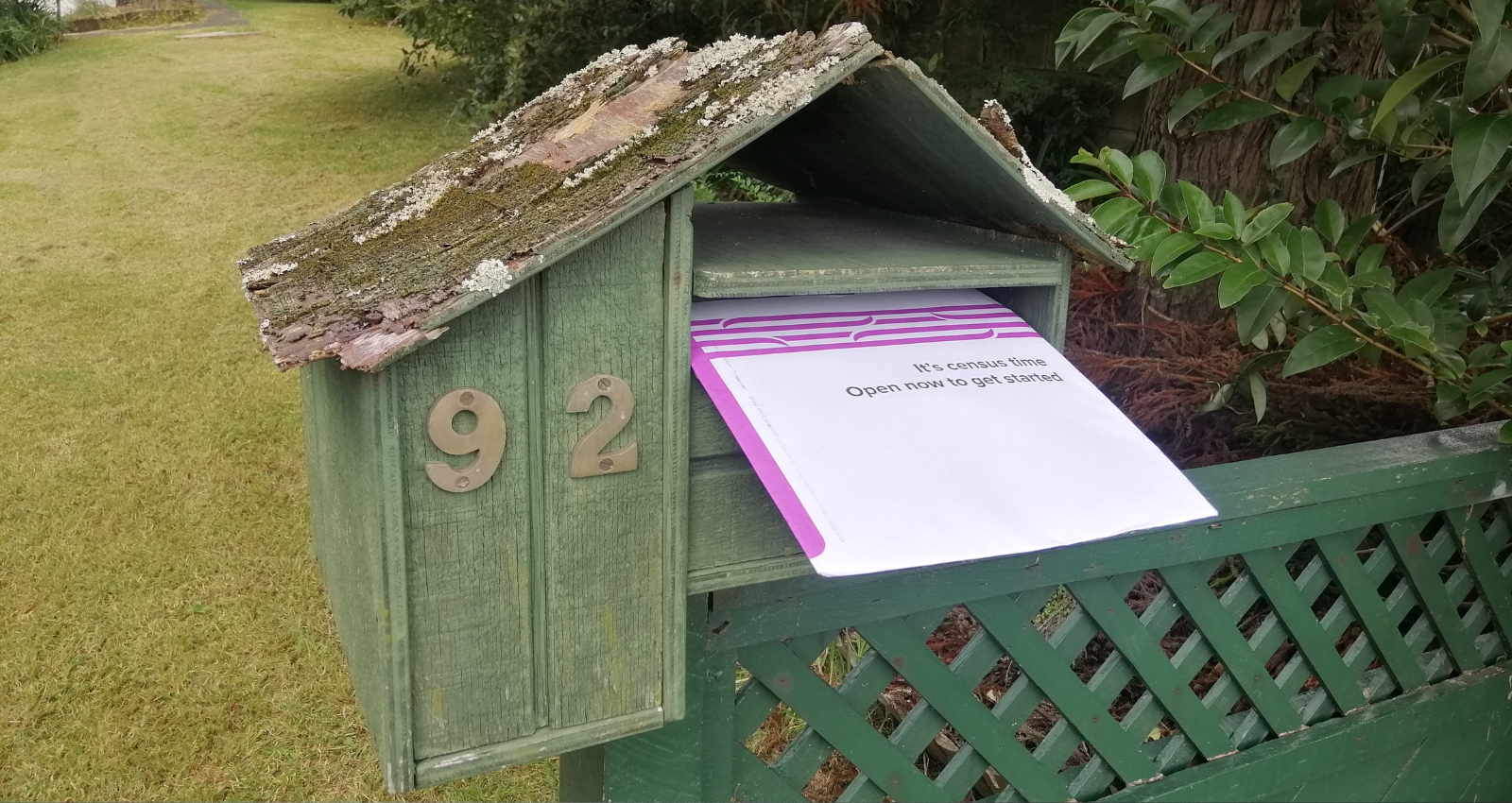

Malaetogia Dr Jacinta Fa’alili-Fidow urges more care with data collection from Pacific communities.
Photo/LeVa/Unsplash
Urgent call to prevent Pasifika being ‘invisible’ in Census overhaul
A Pacific data expert warns that New Zealand’s shift from traditional methods threatens the cultural and social wellbeing for Pasifika communities.



Pacific unemployment soars despite NZ jobs growing nationwide


Hawaiian delegation stands with Māori at Waitangi gathering


Pacific unemployment soars despite NZ jobs growing nationwide

A leading Pacific data expert is warning that government reforms to New Zealand’s national census may overlook key cultural and social indicators unless Pasifika communities are included in the decision-making process.
The Government plans to replace the traditional five-yearly census with administrative data, supplemented by smaller targeted surveys.
Stats NZ says the move will reduce costs and improve flexibility. But Malaetogia Dr Jacinta Fa’alili-Fidow, of the Pacific Data Sovereignty Network (PDSN), warns that proposed reforms to the census could render Pasifika communities “invisible” for years.
In an interview with Ala Vailala on Pacific Mornings, she says the shift could have a long-lasting impact on Pacific wellbeing.
“When you visit the doctors, if you attend an education institute here in Aotearoa, they collect your data, it goes into a centralised data system. Instead of the survey, they'll be utilising any data about you across the government to reflect ‘Pacific peoples in Aotearoa’.
“On the one hand, while that sounds efficient... the issue here is we don't collect all the data that we collect in a survey.”
Fa’alili-Fidow says misrepresentation of Pacific people in official datasets is already occurring and raises concerns about cancer screening statistics.
“We just aren't capturing data as accurately as we want to. Cancer screening, for example... often we're represented as having the highest levels of screening when in fact we don't,” she says.
“What this means is when you go to invest in cancer screening services, there is an underinvestment to try and capture Pacific women in cancer screening and Pacific peoples.”
Watch Dr Jacinta Fa'alili-Fidow's full interview below.
A changing population
As Pacific communities are expected to make up 11 per cent of Aotearoa’s population in the next 18 years, Fa’alili-Fidow says it’s important to capture accurate data about these communities.
She supports involving Pacific community champions, such as church leaders and facilitators from schools and sports groups, in outreach and data collection efforts.
“There has been limited participation of Pacific peoples, and where there is participation, there hasn’t been always the best response... some of that trust will be improved if Pacific peoples, if they see themselves in a lot of these systems. If we don’t, we’ll just find this exponential, disproportionate burden on our communities.”
By 2043, nearly 40 per cent of New Zealand’s population is expected to identify as Māori or Pacific. Gerardine Clifford-Lidstone, Secretary at the Ministry for Pacific Peoples, says this shift has significant implications for the workforce, language, and genealogical ties.

The Pacific population is one of the fastest growing ethnicities in NZ. Image/Stats NZ
The Long-term Insights Briefing 2023 highlights challenges in recognising multi-cultural heritage: Many New Zealanders who identify as both Māori and Pasifika are currently counted only as Māori in certain datasets.
This underlines the importance of understanding the needs and opportunities for people with multiple ethnicities in an increasingly diverse New Zealand.
In an earlier interview, Clifford-Lidstone says steps are being taken to address these gaps based on feedback from iwi and community leaders.
“There are so many that have said, ‘my moko [grandchild] is part Tongan, part Māori, and they speak both Māori and Tongan’. Others say, ‘I know someone in my whānau, who's part-Cook Islands, part-Māori, and they want to learn their Cook Islands whakapapa’ because they've been raised entirely with a Māori worldview."

Households will no longer have to complete a five-yearly Census. Photo/PMN News/Khalia Strong
Inclusion in governance
Fa’alili-Fidow is calling for the inclusion of Pacific voices in governance and advisory roles within the new census framework.
“Technical advisory groups, expert advisory groups, Pacific people need to be in there,” she says. “Even if you work in a sector that collects data from Pacific peoples, you too can be involved and help advocate to improve the way you collect data about Pacific peoples.”
She says a Pacific Data Wellbeing Framework should reflect a holistic view of wellbeing that differs from mainstream models.
Looking ahead, Fa’alili-Fidow wants to ensure that Pacific people are not left behind as artificial intelligence (AI) plays an increasingly central role in decision-making.
“For Pacific, even if Pacific isn’t going to be a priority group for any of our AI sectors... Pacific peoples need to be involved. We need to be building things ourselves. Our businesses need to be involved... because we will be left behind if we don’t start.”